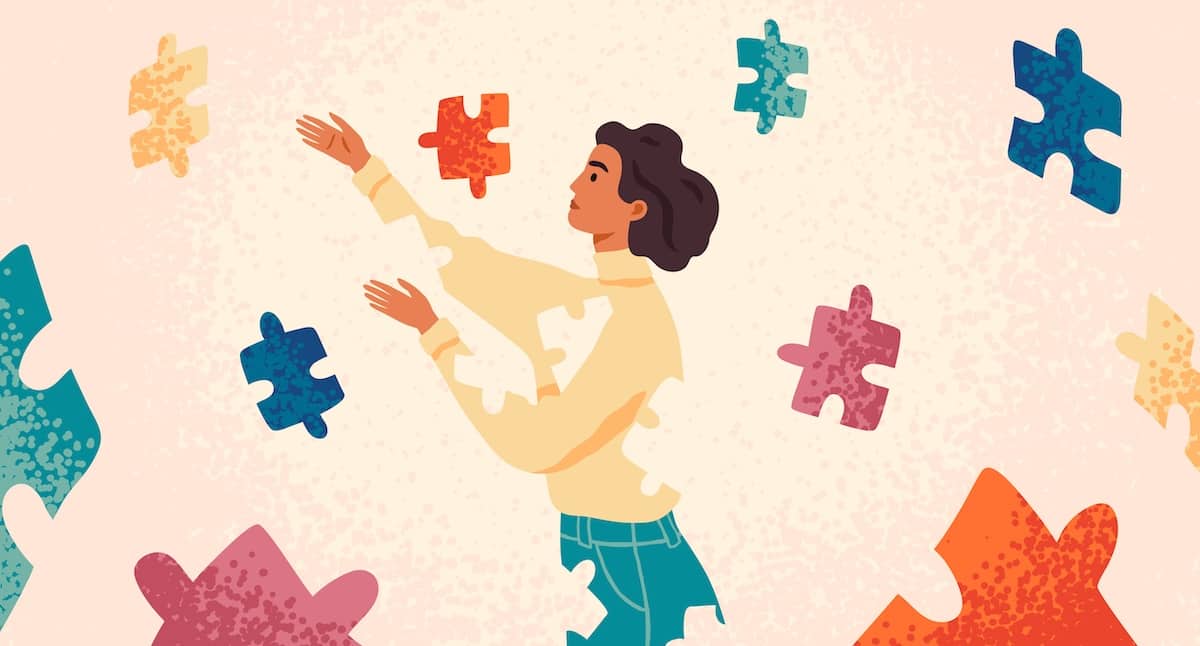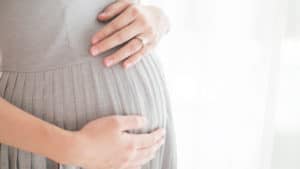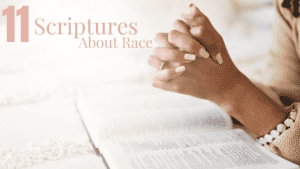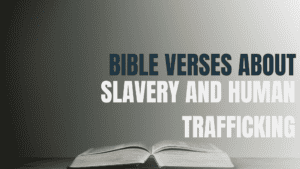Many women who struggle with post-abortion issues believe no one understands. This false belief fuels the shame surrounding abortion and may prevent them from seeking help. Messages that strengthen this untruth come from various sources, reinforcing it in the minds of post-abortive women.
Abortion proponents deceptively claim that post-abortion mental health issues are rare. Our society takes the stance that “terminating pregnancy” is a woman’s right, part of her reproductive wellbeing. The church hardly addresses abortion, let alone post-abortion recovery. Some pro-life Christians express judgment toward “those women” who have abortions, or even vilify them. Post-abortive women tend toward secrecy and silence. This can isolate them from potential healing and hope after an abortion and becoming a source of help to others.
Unfortunately, the need for post-abortion recovery is massive, because “those women” are everywhere. According to the most recent data:
- About 1 in 4 women (24%) will have an abortion by age 45.
- Over half of abortion patients (54%) identify as Christian (30% Protestant, 24% Catholic).
- About 6 out of every 10 women who have an abortion (59%) already have one or more children.
Whether you consider age, ethnicity, socio-economic status or other characteristics, “those women” are a cross-section of us all.
After-abortion symptoms
The range of potential post-abortion symptoms is vast. Women may experience depression, anxiety, eating disorders, addiction, maternal bonding difficulties, sexual dysfunction (promiscuity/aversion), self-harm, flashbacks/PTSD and even suicidal thoughts. These symptoms are sometimes grouped under the heading “post-abortion syndrome.”
Unfortunately, using the term post-abortion syndrome has two major disadvantages:
- It’s not medically recognized. People with a science-based perspective dismiss the idea. However, the medical community does recognize the existence of abortion-specific post-traumatic stress disorder (PTSD).
- It typically doesn’t resonate with post-abortive women. Many women fail to realize their symptoms are rooted in the pain of a past abortion. Women who do realize the connection typically wouldn’t consider their issues to be a “syndrome.” It has the ring of a defined medical condition. The adverse effects of abortion are far more amorphous and insidious.
Post-abortion awareness
That being said, life-affecting issues that don’t rise to the level of a clinical disorder are easier for people to dismiss. They may not seem serious enough to warrant seeking help. Many people lack the self-awareness to realize they have issues at all.
In addition, mental health problems still have a stigma in our culture. Challenges with depression, anxiety, addiction, etc. can be perceived as weaknesses or character flaws. In church circles, mental health issues may be misinterpreted as a faith deficiency. If someone who’s suffering confides in a friend whose only response is “I’ll pray for you,” it could be devastating.
Is that how God wants us to love each other? Jesus answers this question in Luke 10:25-37 through the parable of the good Samaritan. Also, James 2:14-17 addresses our call to meet each other’s needs even more directly. Genuine faith is expressed through prayer and action. We’re called to love each other the way Christ loves us (John 15:12), with kindness and compassion.
Additional resources:
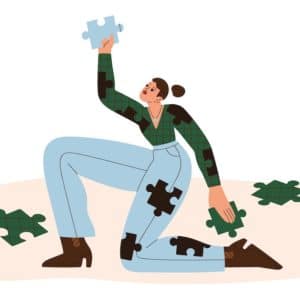
He heals the brokenhearted and binds up their wounds.
Psalm 147:3 Tweet
A personal story of post-abortion recovery
When someone new asks about my vocation, I’m excited to show them love through vulnerability. I describe speaking for youth, women and pro-life ministries – passionate to see people set free for joyful, abundant life! If the situation is appropriate, I’ll share my testimony of “going from soap opera life to freedom in Christ.”
My acting career began in high school and college. At age 19, I landed my dream job on ABC’s All My Children. After moving to Manhattan, my joy gave way to alternating cycles of extreme diet, exercise and binge eating. The eating disorder and resulting depression were all-consuming for 5 years before I hit bottom. Desperate, I turned to my church’s women’s ministry leader, a professional therapist. She helped me formulate a treatment plan, and I slowly started improving. Ultimately, I realized self-condemnation over an abortion at age 18 was the underlying cause of my issues.
I discovered a local pregnancy resource center’s post-abortion program, Forgiven and Set Free. It was painful to grieve the loss of my child and work through the fallout of that terrible decision. But, by the end of that Bible study, I truly was forgiven and free. Galatians 5:1 became my life verse and ministry mission! “It is for freedom that Christ has set us free. Stand firm, then, and do not let yourselves be burdened again by a yoke of slavery.” (NIV)
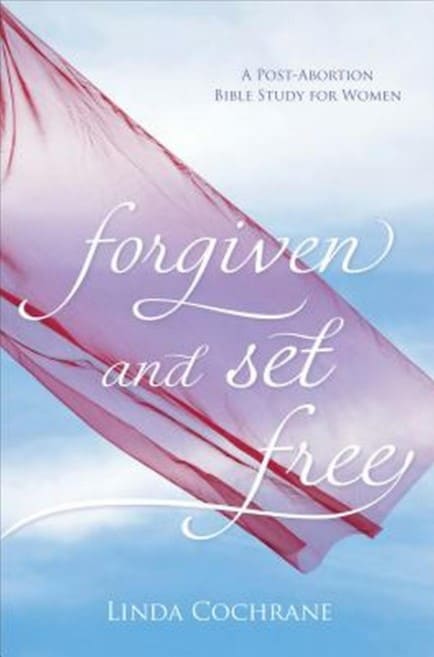
Forgiven and Set Free
A guide for hurting women to bring their emotional scars from abortion "out of the dark past and into his holy light" where true and lasting healing can take place. Deals with issues such as relief, denial, anger, forgiveness, depression, letting go and acceptance.
Is post-abortion syndrome real?
Sharing my story with women creates a safe space – they often share their own, grateful for empathy. I once met an older woman who took decades to realize the subconscious effects of a teenage abortion decision that had led to some detrimental life choices. She explained, “I didn’t have obvious life-controlling issues, so I thought I was fine.” She didn’t realize post-abortion symptoms were affecting her life.
Eventually, she went through post-abortion recovery and shifted her focus from unhealthy people-pleasing to healthy self-care. Now she and her adult children are living in greater freedom. The positive effects of post-abortion healing are rippling throughout her family.
The negative ripple effects of unhealed wounds don’t diminish over time. After a pregnancy center fundraiser years ago, an elderly man approached me. He was holding back tears, lamenting an abortion decision he and his late wife made in their youth. I encouraged him to reach out to the center and pursue the healing he desperately needed!
Finding post-abortion hope and healing
Regretting an abortion years later isn’t unusual. Surveys have found a delayed onset of post-abortion symptoms. Many women who initially felt confident about their choice eventually reported “doubts or negative feelings” months or years later. As time passes, women are both more likely to experience post-abortion distress and to recognize it.
Many women who recognize their post-abortion issues are too ashamed to seek help – especially Christian women. Church should be the safest place to confess sin, find hope and pursue healing. Sadly, many post-abortive women find that’s not the case. They suffer in silence, fearing judgment, and post-abortive men do the same. Fathers who couldn’t save their child from a mother’s decision are very susceptible to post-abortion distress. The ripple effect of pain and loss impacts grandparents, siblings and entire families.
The church must do more to help post-abortive women and men experience true freedom in Christ. Likewise, those struggling with the fallout of a past abortion must believe there is hope and actively seek healing. If you’re a leader seeking to better serve your church body, reach out and support your local, pro-life pregnancy medical clinic. They would be thrilled to come alongside your efforts.
If you’re struggling with a past abortion or a loved one needs your help, healing can start today! Take a step to connect with a source of support. Post-abortion hope and healing are within reach!
Additional Resources:
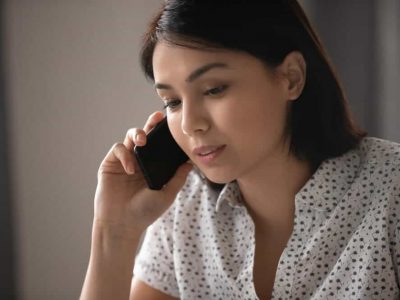
Talk to a Counselor
Reach a counselor toll-free at 1-855-771-HELP (4357).









